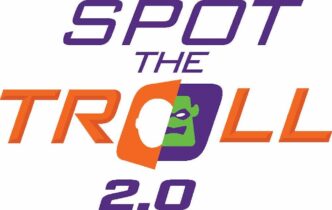The Clemson University Media Forensics Hub has launched an updated version of its popular “Spot the Troll” quiz designed to help educate users on how to detect deception and fraud online.
Spot the Troll 2.0 features eight social media profiles that users are asked to judge as either authentic or fake accounts. After each response, users can click through to read about the signs to look for and tips to help spot deceptive accounts in the future.
The original quiz, which was created in 2020, focused purely on spotting fake accounts created by the Internet Research Agency in Russia. It has been accessed by more than 1 million users so far, and research has shown it to be an effective tool in helping people identify inauthentic accounts.
“This is the only tool that has been documented to improve people’s ability to spot fake social media accounts,” said Patrick Warren, co-director of the Media Forensics Hub and associate professor of economics. “There are lots of interventions out there to help people deal with information problems online, but most are designed to help people spot fake news. Spot the Troll is different, it helps people spot fake social media accounts.”
The new version of the quiz includes challenges facing today’s social media landscape, such as financial fraud, foreign propaganda, stolen valor, and health-related scams.
“We have expanded the quiz not only to include content from other nation states, but more importantly, to include content from bad actors engaging in online fraud, especially those trying to steal your money,” said Hub co-director Darren Linvill, professor of communication. “People have a lot of assumptions about what a troll is, who’s most likely to get defrauded, who’s most likely to be targeted, what a troll looks like. Many of those assumptions are wrong. Everyone is being targeted by online scams and frauds and the tactics are always evolving.”
The quiz is designed for any user of social media and the internet to take, from young adult to long retired. People of all demographics can fall prey to online deception.
“People assume that younger people, like Gen Z, come preinstalled with detecting software to avoid being trapped by these scams or tricked by AI,” said Molly Riddell, doctoral student in rhetorics, communication and information design who works for the Hub. “That’s not the case. Young people also need to be building these baseline skills about how the internet environment is trying to trick, threaten or defraud them.”








